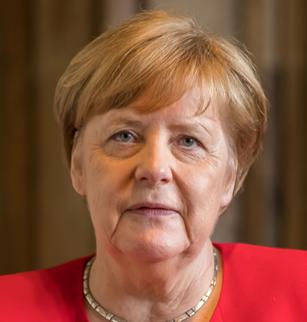
3 minute read
Celebrating Women Leaders in SA
ADRESSING THTE NATION
MARCH 2021
President Ramaphosa wrote his weekly letter to the nation on March 8, International
Women’s Day, and opened by reminding us that the day has been celebrated for more than a hundred years as part of the drive for gender equity and women’s rights.
Key to the women’s rights movement is the 1994 Women’s Charter, which notes that at the heart of women’s marginalisation in South Africa are the attitudes and practices that “confine women to the domestic arena, and reserve for men the arena where political power and authority reside” Commenting on this statement, the President writes:
“There can be no meaningful progress for women if our society continues to relegate women to ‘traditional’ professions, occupations or roles, while it is mainly men who sit on decision making structures. Fittingly, the theme of this year’s International Women’s Day is women’s leadership and achieving an equal future in a COVID-19 world.”
Referring to the pandemic which beset South Africa a year ago, we are reminded of the pivotal role played by the courageous frontline workers such as doctors, nurses, police, soldiers and emergency personnel. And whilst the schools were closed, the dedication of teachers, principals and lecturers ensured that students and learners continued to receive an education
despite the disruption caused by the pandemic. In saluting theses courageous women, President Ramaphosa made special mention of Petronella Benjamin from Eerste River, Western Cape, who lost her life to COVID-19 just days before she was due to retire after working for 25 years as a nurse - and the thousands of fieldworkers like Azalet Dube from Doctors without Borders, who went into communities to raise awareness, who worked in health facilities as contract tracers, and who provided psycho-social support to families and individuals in distress.
“This includes women like Fazila Gany, a longstanding member of the National Shelter Movement who also sadly passed away from COVID-19. The Movement has been critical in ensuring women and children at risk received support and access to services during the pandemic.”
The President thanked the women leading civil society organisations who worked and continue to work with the Ministerial Advisory Committee in driving a holistic approach to managing the pandemic. “Women doctors, researchers and scientists have played and continue to play an important role in our epidemiological response. One of the COVID-19 vaccine clinical trials conducted last year, the Ensemble trial, was led by two female scientists, Prof Glenda Gray of the South African Medical Research Council and Prof Linda-Gail Bekker of the Desmond Tutu HIV Centre.”
The most vulnerable members of our community who suffered increased violence during lockdown were assisted by numerous NGOs staffed and led by women. Women like Nandi Msezane, who helped raise funds for food support in affected communities, and helped to provide access to mental health support for the LGBTQI+ community during the lockdown.
Key to an informed relief response was the research carried out by academics on economic vulnerability and poverty trends in South Africa. In the forefront of this research into rural poverty was Dr Vuyo Mahlati, whom we lost in 2020. At the time she was studying the impact of the pandemic on food security in vulnerable communities, especially small scale farmers.
“In the private sector, women business leaders have been visible in mobilising financial resources to support government’s efforts. The Solidarity Fund, which has played such a key role in this regard, is chaired by one of South Africa’s most prominent businesswomen, Gloria Serobe. Women CEOs, board members and fund managers continue to play a leading role in pushing for their companies to support government’s Economic Reconstruction and Recovery Plan.”
In his letter, President Ramaphosa acknowledges the often unrecognised role of the women in public administration who lead the many government departments at the forefront of the national relief response. And whilst he highlighted the long journey still ahead, he took the opportunity to celebrate
“how far we have come as a society thanks to the role of women leaders, particularly in helping the nation through this pandemic. As we have struggled against this disease, women have been present and prominent in almost every arena of life.
This has set a standard for the kind of society we continue to build. It has inspired and encouraged us to build an equal future.” n










